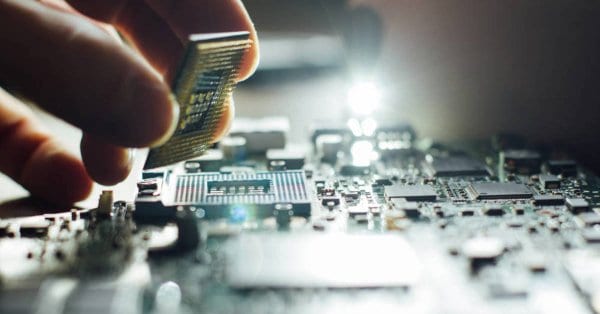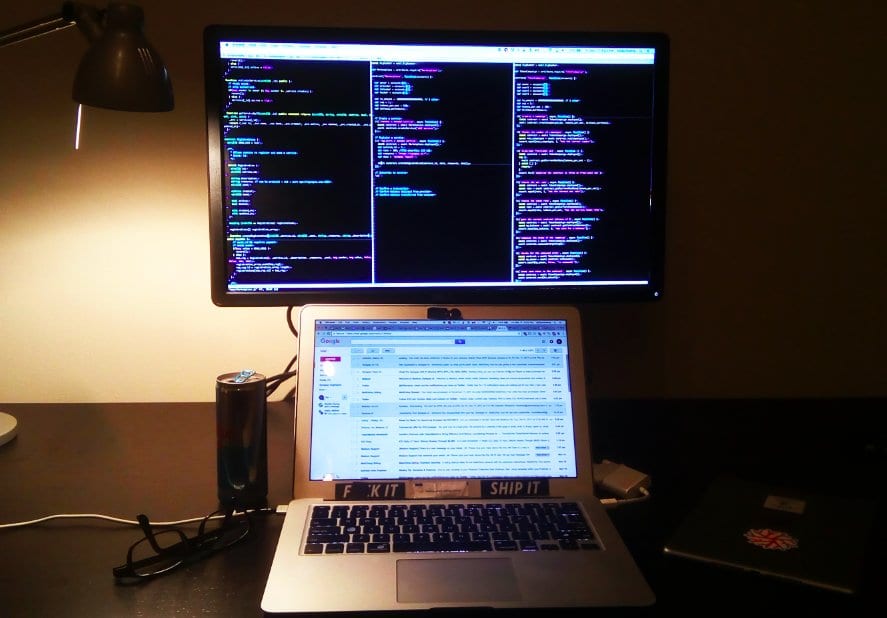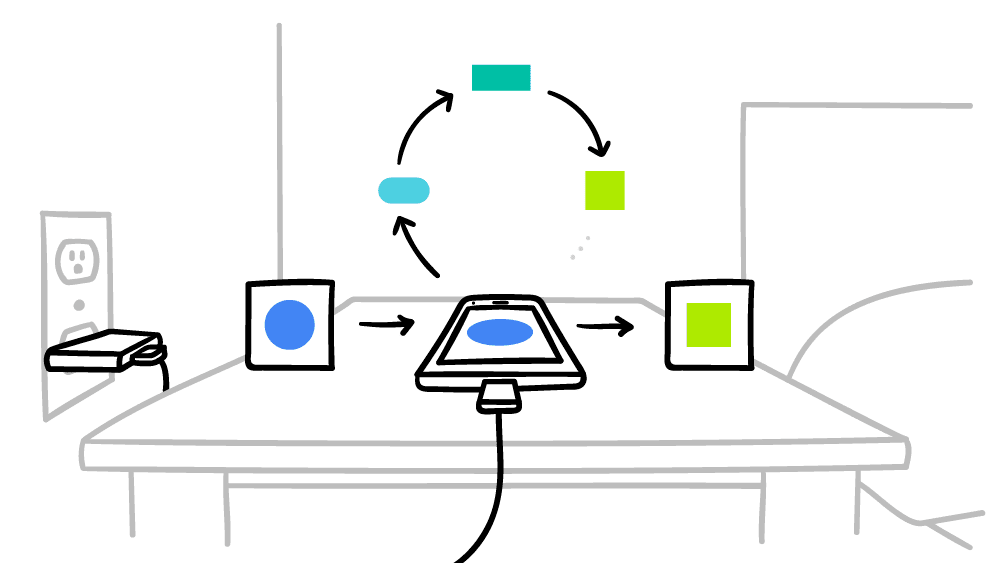Even though big tech is getting bigger thanks to the profusion of data and are adding better than expected earnings to their annual reports, mid-sized companies and startups lack resources to AI-based computational power. Access to big data is monopolized by American tech superpower and China’s BAT (Baidu, Alibaba & Tencent) trinity. Experts estimate that access to cloud computing for ML tasks is highly centralized by the subset of the same players. And as the buzz around machine learning and deep learning grows by the day, data — the key requirement that undergirds AI system is missing from the puzzle.
Understanding The Limitations of Contemporary AI
So far, deep-pocketed companies such as Google, Amazon, Baidu, IBM, Facebook, and Microsoft are revolutionizing Deep Learning, the hottest tech trend by investing heavily in R&D, hiring the best talent and releasing open AI hardware and software.
And interoperability is the holy grail of AI. Big companies are seeing big gains by leveraging datasets and capabilities and putting their solutions together (Amazon & Microsoft released Gluon) . Despite a slew of solutions in the market, startups and mid-sized companies still face big roadblocks in AI a) expensive hardware b) lack of data.
Despite a proliferation of AI tools , the market is still fragmented by a closed development environment. Most industry solutions are developed by one company to perform one task, and there is no way to plug two tools together, notes Singularity NET Chief Scientist Ben Goertzel. Goertzel is the same guy behind the most human-like robot — Sophia and now he is integrating Blockchain to create a platform for decentralized marketplace for AI.
So far, the contemporary AI industry is fuelled by Google, Amazon, Microsoft that is has opened their machine learning solutions which are delivered as a part of cloud-based APIs and software packages were deployed on remote servers of AI providers. Contemporary AI comes with its own shortcomings, according to serial entrepreneur Artur Kiulian and Partner at Colab.la, developers who use open source tools usually face high latency issues since machine learning algorithms require heavy computations.
He further adds that when one is training AI models in a centralized way, it takes more time to fine-tune and improve them. Now, this Contemporary paradigm is about to get upended with a new model, termed the Decentralized AI — which promises a marketplace for AI, the model operate similar to the way Bitcoin created a decentralized payment system and Ethereum — a global decentralized computing platform.
Disrupting the industry with Decentralized AI
According to this infographic, the industry of artificial intelligence is expected to contribute $15.7 trillion to the economy. Another study by Transparency Market Research indicates that the global artificial intelligence market is projected to grow from $233.8 billion in 2017 to $3.1 trillion in 2025. Now, Big Data which is at the core of this industry is expected to grow exponentially, up to 180 zettabytes of data (or 180 trillion gigabytes) in 2025, an IDC report estimates.
Even though AI is core to the fourth industrial Revolution, there exists no decentralized or even centralized open markets for each of the components required for machine learning: big data, ML models and computing power, notes Orlovsky Maxim, Founder & Visionary at Pandora Boxchain. Maxim, an AI & Blockchain expert is on a mission to decentralize and disrupt the AI industry by creating an open market that will be inclusive for all key players and speed up development of ML solutions.
Maxim believes that people producing ML kernels and AI architectures lack a marketplace to sell their work. There is no marketplace for raw data and other such value-added content which can be potentially bought and sold either via marketplaces so that enterprises can start developing methods for valuing their data. This can make Data monetization a major source of revenue for small players as well besides biggies such as Google.
The Evolution of AI-as-a-Service Model
The key idea behind Decentralized AI is to provide an open market for all the segments. In Goertzel’s word, it will be a “decentralized, open market for AI in the cloud so anyone who develops an AI product can put it into the platform, wrap it in the cryptocurrency-based smart contract and then the AI they put there can help to serve any software programs that need AI“.
And companies providing AI-as-a-service on a permissionless platform are using the blockchain technology (the same tech behind bitcoin) to provide digitized tokens for users to pay for functions. In a way, this will put in motion a “smart contract” a virtual agreement linked into the code of the platform, it will be automatically fulfilled when the terms are met and will eliminate the need for middlemen.
What’s The Upside Of Using AI-as-a-Service For SMBs
- The open-market platform will give machine learning experts and data scientists an opportunity to monetize their models and knowledge.
- This will bring down the cost of computing power, which will help mid-sized businesses and SMBs to gather and process data for AI applications.
- Access to datasets and ML models sources for AI computing
How Can Data Scientists & ML Experts Use The Platform
According to Pandora Boxchain project founder Dr Maxim:
- Data scientists can sell their ML models to a larger community and startups
- AI scientists can monetize AI research and even monetize data sets on the markeplace
- Experts can get a good price while SMBs and developers can easily find datasets needed for training and computing ML models for business and research tasks.
The Move Towards Decentralized AI is Led by Google & There Are Other Companies Too
Google’s Federated Learning Approach: Last year, Google scientists revealed the idea behind crowd sourcing machine-learning models which are trained directly on the user’s smartphones. They dubbed the new approach — Federated Learning that enables smartphone users to collaboratively learn a shared prediction model while keeping all the training data on device. This approach also rules out technical challenges of high latency, bandwidth and high power consumption by distributing the data across millions of devices in a highly uneven fashion. This means, users no longer have to connect to remote servers to use ML software. According to Google’ blog, Federated learning works without the need to store user data in the cloud. This also paved the way for device-centric AI wherein users can adopt new tools and a new way of thinking for tackling AI challenges.
Synapse AI: Synapse AI provides a machine learning marketplace and exchange. This project consists of a three-member team Dan Gailey, Nathan Ross and Jamie Cushenan. This marketplace allows developers to contribute data, train machine learning models, and be compensated for both. Agents (developers and ML experts) can fulfill smart contract and ad-hoc data queries. The platform will tokenize the agent’s work on the Synapse AI market via SYN utility tokens.
Open Mined: Launched in August last year by Andrew Trask also follows the similar model by leveraging the concept of Federated Learning, Homomorphic Encryption, and Smart Contracts. ML experts can provide training models which will be encrypted with Homomorphic Encryption, and shared with AI practitioners and researchers. in turn, the price will be determined by how much the data contributes to the accuracy of the model.
SingularityNET: Since its launch, founder Ben Goertzel raised $36 million in 60 seconds for his SingularityNET project. Goertzel is also the creator of world famous robot Sophia and is now democratizing AI by letting experts monetize AI, and enabling startups, companies to buy and sell AI solutions at scale. The company’s website pegs the open marketplace as a one-stop-shop for automation-in-a-box at phenomenally low costs.
Pandora Boxchain: This project also follows the same model and has already self-funded the development of economic model for the Pandora Network and Proof of Cognitive Work algorithm, besides developing the POC in code, Ethereum smart contracts and Javascript,, their blog indicates. You can see their code on GitHub.













































































